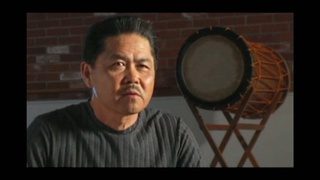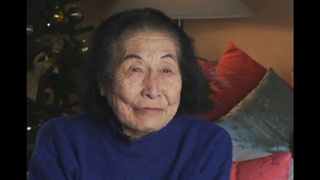Interviews
Japanese musical education
This is a Japanese education. Music education is totally different. If you really want to study traditional music in Japan, costs lot of money. We learn at the school Chopin, Mozart, Beethoven. [humming] Tchaikovsky. They don’t teach the Japanese traditional (?) [demonstrating]. But now, they change now—the educational system. Now they study [in] other music program, they study Japanese shakuhachi or shamisen or taiko. And lot of my student, young fresh off the boat people, “I’m Japanese, but I never play taiko.” So they are learning from my assistant drummer who is not Japanese. So Japanese, original country, taiko country, come [to] United States, and they study from the Americans, Japanese taiko. They said, “I never play taiko.”
Date: January 27, 2005
Location: California, US
Interviewer: Art Hansen, Sojin Kim
Contributed by: Watase Media Arts Center, Japanese American National Museum.







